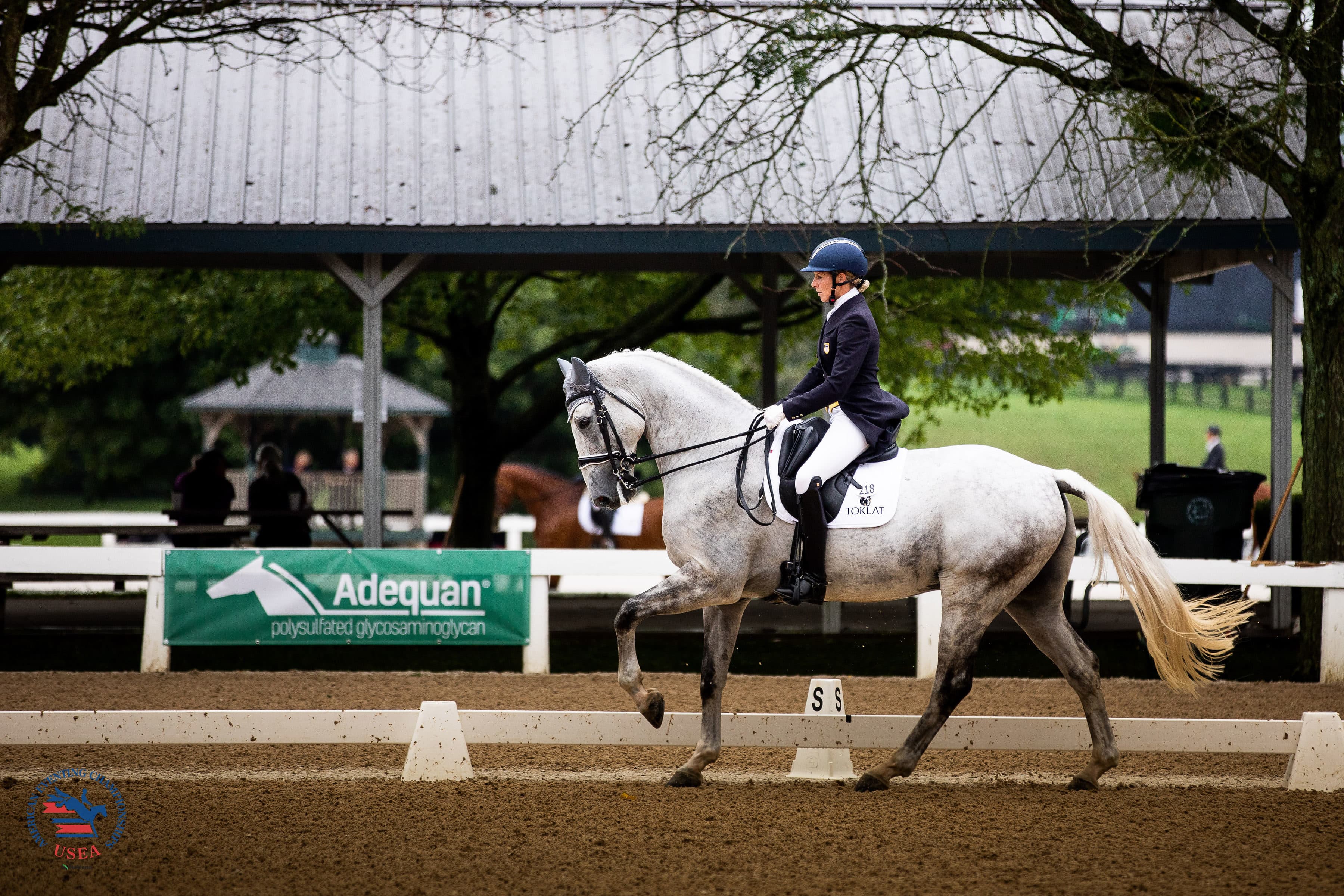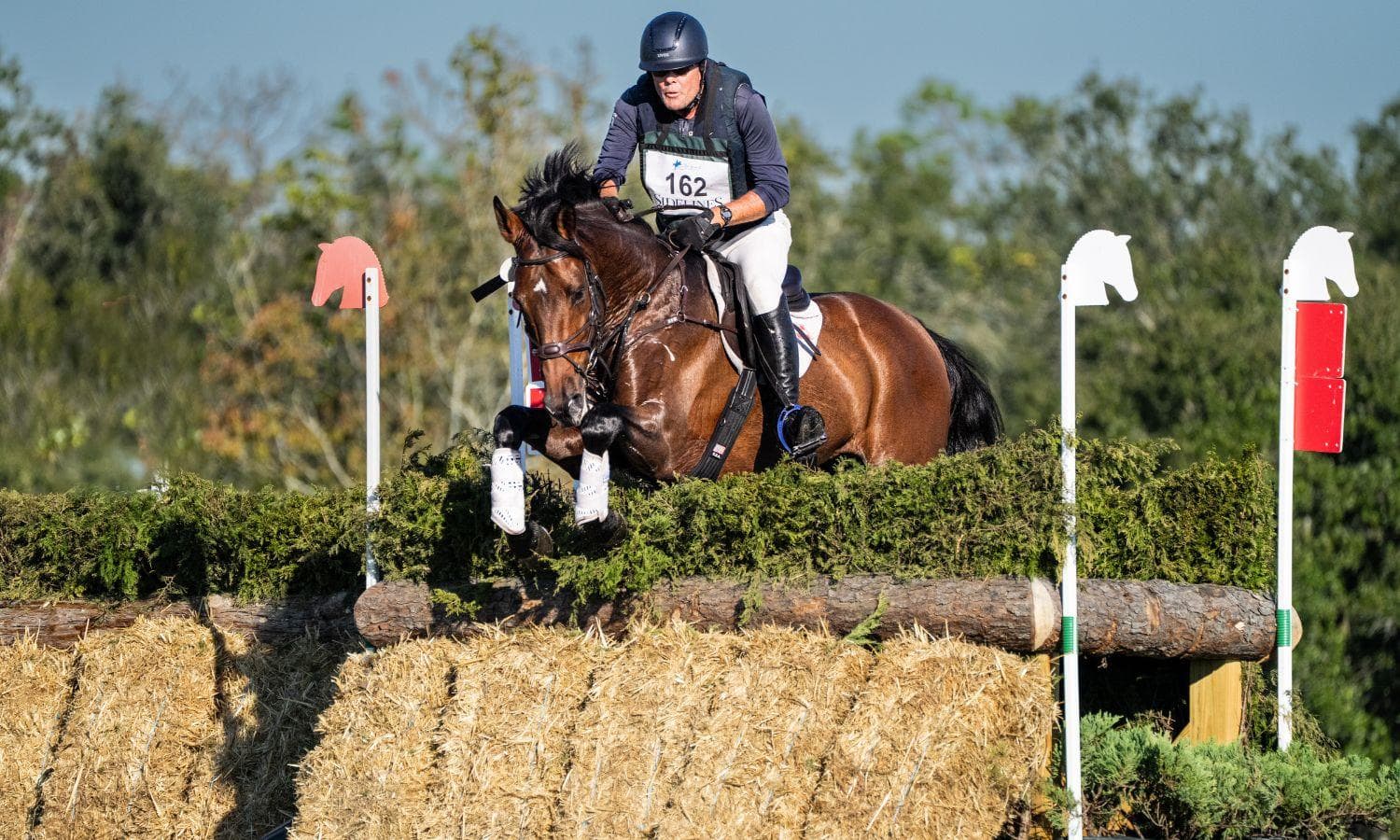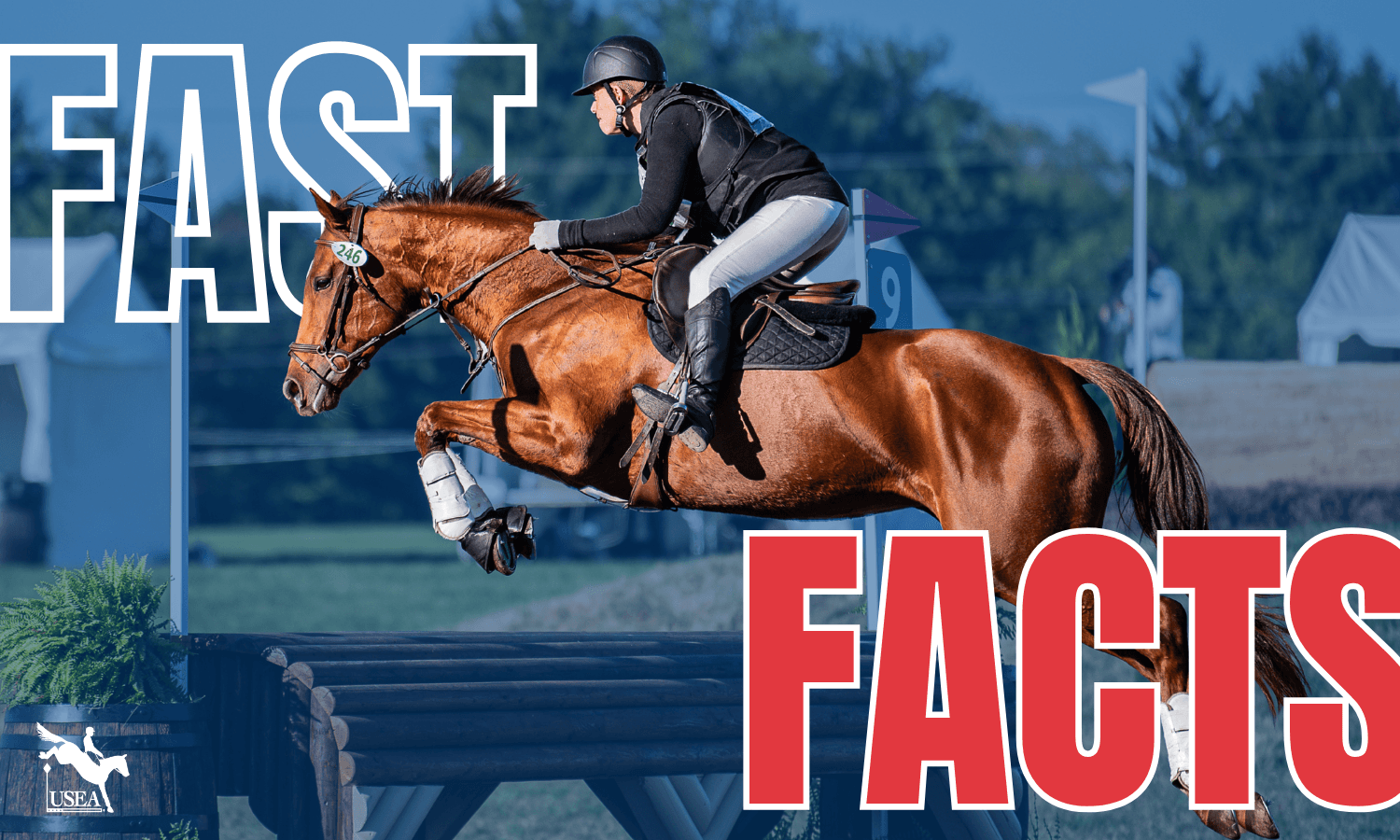Behind-the-Scenes of the New 2022 USEF Eventing Dressage Tests with Liz Halliday-Sharp and Ride iQ

Following the rollout of the new 2022 USEF Eventing Dressage Tests, USEA Educational Collaborator Ride iQ spoke with international eventer and USEA 2020 Rider of the Year Elisabeth Halliday-Sharp, who played a large part in the development of the tests, to hear her perspective about the new tests and her experience developing them. Halliday-Sharp was a member of the committee who worked tirelessly to write tests that are efficient, flowing, and hopefully well-received by organizers and riders alike.
Here’s what Halliday-Sharp had to say:
What was the thought process and goal behind the update to the way collective marks are written and scored?
“We are making a very big effort to cut down the time frame for each test. It was a requirement for us to not have the tests go beyond this time frame, but for each test to still have a positive flow. Having a more simplified scoring process plays a large part in this. In addition, it falls in line with what the FEI is doing now. It also gives the chance for horses that may not be as flashy, but had a very harmonious and correct test, to still score well in the collective marks. It won’t be a dramatic change in scoring, but it will level the playing field at the very end of the test.”
Which changes are you most excited to introduce?
“There were a few things that I was pretty adamant about, one of those was that the Advanced tests would not have more than two flying changes. I feel very strongly that you need a chance to just get your horses out for experience at the Advanced level, and that the test should not be harder than a CCI4*. We are not necessarily trying to get horses ready for a CCI5* when they go out and compete at Advanced. I also felt that the previous Intermediate B was far too complex. It was like having an Advanced Test without flying changes. We should not have every single movement that can be performed at a level be in the same test, and we addressed this. Another thing I was very passionate about was having the Modified tests reflect an actual step up from Training while being less challenging than the Preliminary tests.”
What was the most difficult part in developing the new tests?
“Everyone put a lot of time and effort into this. We were very conscious that a lot of riders at many different career stages would be performing these tests, so it was very important to us that we developed tests that riders would appreciate and find to be a fair challenge at the level. We were also dealing with a lot of pressure to make the tests fit into a certain time frame while still flowing and asking the right questions. We worked very hard to achieve that goal.”
One of the key takeaways from Ride iQ’s conversation with Halliday-Sharp was the extensive time and consideration put into the creation of the 2022 tests. There was a team of passionate individuals involved in the project and a huge collaborative effort to make sure each test and movement was intentional and thoughtful. The team prioritized creating positive experiences for horses and riders through educational flowing tests for all levels while also considering the time constraints to ensure efficient show running.
Some of the most notable changes in the 2022 eventing tests include the introduction of a Starter test, a test “C” for levels Modified through Intermediate, and adjustments in the scoring of the collective marks. Now venues that don’t have a 20x60 arena can still host an Intermediate division with a 20x40 arena, pending USEF approval. All tests ridden in a small arena will be approximately four minutes in length except for Intermediate Test “C,”another adjustment to benefit show organizers and capacity limitations.
Alongside the release of the 2022 USEF Eventing Dressage Tests, there’s a new tool for memorizing, practicing, and polishing your dressage performances: Ride iQ.
Even with three high-stakes phases, event riders know that their performance in the dressage arena establishes the possibilities for the remainder of the competition. And yet, many pairs leave opportunities on the table, or in this case, in the arena.
Ride iQ is a first-of-its-kind equestrian coaching tool with listen-while-you-ride audio lessons taught by top-level coaches, riders, and judges. Ride iQ membership is $29.99/month or $249/year and includes unlimited access to the Ride iQ mobile app with hundreds of audio lessons and other training resources.
There are specific tools for dressage to help users master the new tests from all angles, from memorization to execution. The lessons are designed to support productive schooling rides leading up to personal bests on competition day.
Dressage tools you’ll find on the Ride iQ mobile app include:
Help with memorization: Dressage Test Read-Throughs
In the read-throughs, each movement is read to you as you ride your test in real-time, essentially providing a digital test-caller. You’ll warm-up on your horse, press play, and a bell will sound 45 seconds prior to the calling of the first movement. It allows you to ride the test exactly how you would at a show. The speed of the audio playback can be adjusted to best suit your horse’s tempo, although it’s not often necessary. The read-throughs feature tests from Beginner Novice to CCI4*, as well as the Three-Day Tests for Novice through Preliminary.
Help with perfecting your practice: Dressage Test Ride-Alongs
In these lessons, you ride along with Ride iQ coaches, who ride through the tests on their own horses and share their insights every step of the way.
Curious how that might sound? In a ride-along with Leslie Law, he began by saying, “I’m entering off the right rein because I like to enter the arena on the rein I’m going to track to at the end of the centerline; down the centerline, I position the horse a little shoulder-fore right to demonstrate the straightness.” That commentary continues throughout the test at the pace it takes to ride it.
This tool helps you think about your test like a professional and gives you an invaluable perspective on effectively performing every part. Like the test read-throughs, the audio playback can be slowed down or sped up to best match your horse. More 2022 test ride-along lessons are added regularly, and the team at Ride iQ is outstanding at expeditiously responding to members’ requests for specific tests.
Help achieving your personal best: Dressage Test Playbooks
Have you ever wished a dressage judge would just break it down for you? Pull back the curtain and give you instructions for making the most of your horse and your test? Ride iQ’s dressage test playbooks do just that. Peter Gray, a renowned dressage judge and recently appointed judge at the 2022 Eventing World Championships, is recording movement-by-movement suggestions and insights for every one of the 2022 eventing tests. He shares the thought process behind the scores from a judge’s perspective and how you can execute your ride in a way that will ensure you make the most of your time in the sandbox. The dressage test playbooks are unmounted lessons, meaning you can listen to them and soak in the information before applying it to your next ride-through or competition.
About Ride iQ
Ride iQ is the first audio-focused training platform for equestrians and it offers something completely new to riders: the opportunity to get audio instruction while they ride. The Ride iQ mobile app has hundreds of on-demand audio lessons and the coaches include Doug Payne, Sinead Halpin Maynard, Leslie Law, Kyle Carter, and several more. There are lessons suitable for every level of horse and rider across eventing, hunter / jumpers, and dressage. Ride iQ membership costs $29.99/month or $249/year, and every membership includes a no-obligation 7-day free trial. You can learn more about membership at Ride-iQ.com/membership.















